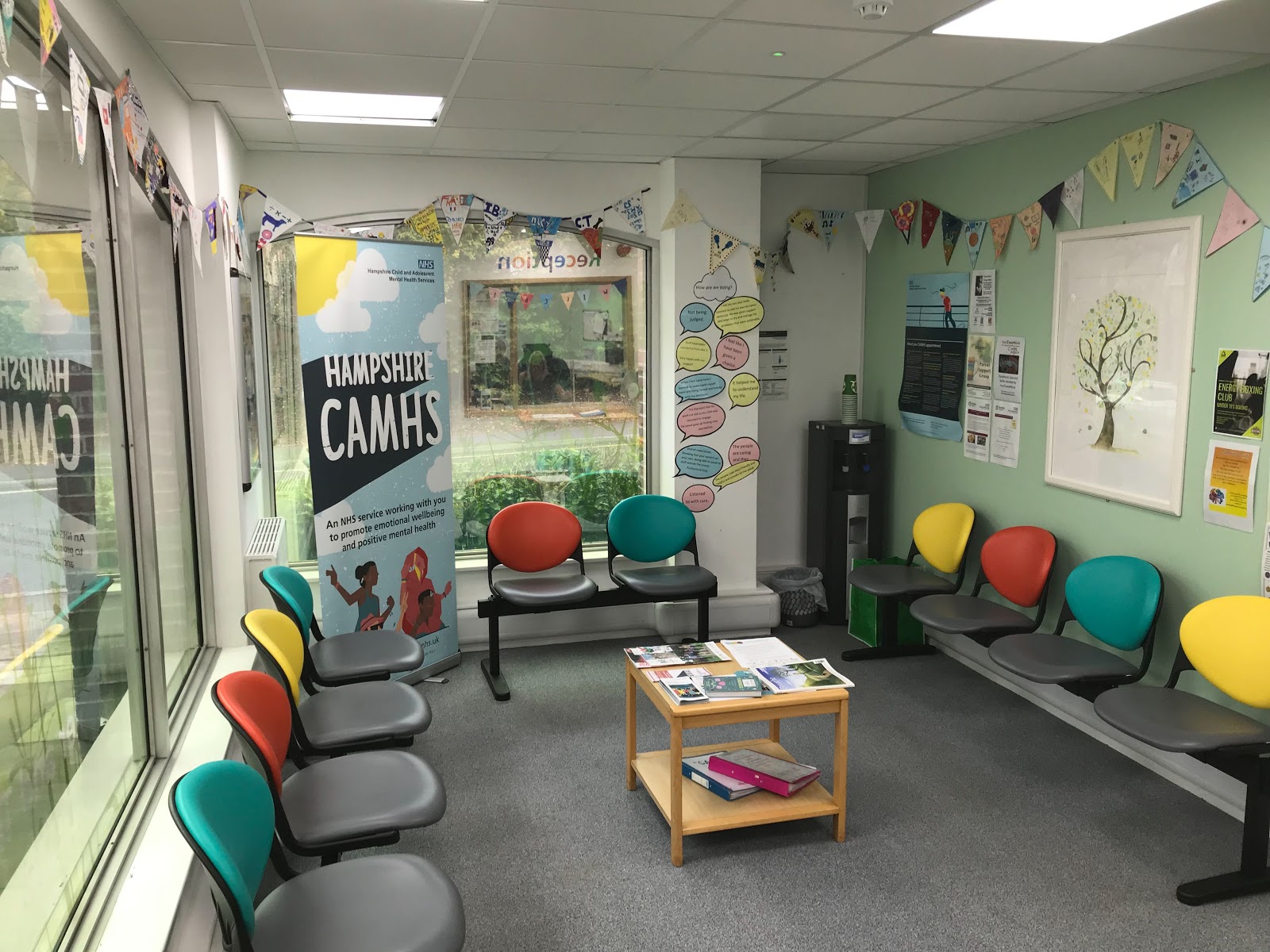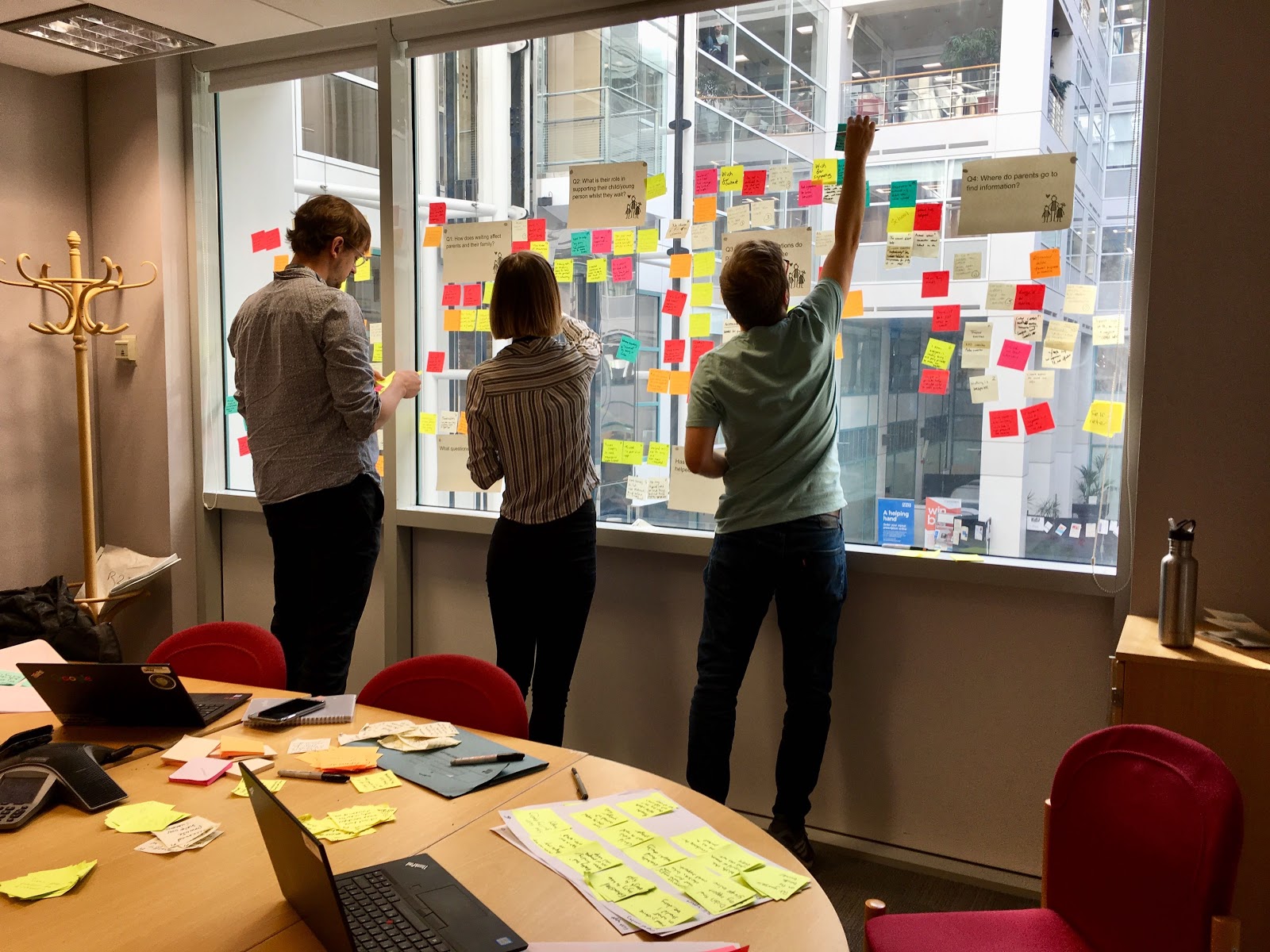NHSX and Mental Health Update 11
This is an informal update to NHSX’s commitment to:
Digital and data specialists from NHSX will team up with NHS England’s mental health national policy teams to help clinicians and policymakers improve patient experience through technology.
This is a selection of things that happened (other things also happened) from team members working on a discovery into children, young people and mental health…

Sussex CAMHS/CYPMHS trip
On Monday we visited a children and young person’s mental health service in Sussex. This was an excellent opportunity to meet with the people running the service and understand their challenges. We were able to speak to the Team Manager a Clinical Psychologist, the Administration Team and a member of Single Point of Access team.
This team is split over two sites and we learnt about some of the challenges that come with covering such a large area as well as issues that are common across all CYPMHS teams. Always extremely valuable for our learning and we are grateful for everyone who took the time to speak with us.
Digital Mental Health and Dementia Steering Group
Sandwiched between two user research sessions with participants the team jumped on a cross-health call to update about our progress. Our intent is to share openly (as these weekly updates hopefully convey!) and we expressed our reflections thus far.
Waiting time pilots
Back in update 9 we shared that, thanks to a colleague, we’d scored an invite to an event in Birmingham. The event was a sharing session from those mental health services picked to pilot new ways to improve waiting times.
It was really wonderful to attend. Not only is it deeply relevant but it was great to hear passionate people share openly about things that went well and others that need improvement. It also helps to understand the context we work in - knowing some of the hurdles we need to face together but affect our future plans.
It’s probably only fair that next time this meetup happens we volunteer to share what we’ve been doing. Instead of silently taking a ton of notes we can be more vocal to this group!
Parent research
This week we completed our final interviews with parents. We wanted to tailor our approach to what parents felt most comfortable with - this resulted in:
- 2 home visits
- 3 video calls
- 4 audio calls These were with parents across the country.
We agreed early on that our researcher was always accompanied by a note taker, this really helped particularly given the sensitive nature of the interviews and made sure everyone was involved. We had 5 colleagues take the role of note taker thus far, user research is a team sport.
We appreciate it mustn’t have been easy for parents to share their experiences with us. To protect participants and our team members we had a debrief session and shared a support leaflet with signposting to other services. It’s an emotionally sensitive topic and we had discussed the impact it could have, thankfully there is good advice out there to help.
We are sure there is more that could be done to protect participants and ourselves… we’d be interested if anyone has any tips about researching with sensitive topics like this one for the future, we’d really like to hear from you.
Parent analysis
 On Friday, the whole team took part in analysis for parent interviews. Each note taker in the team managed to keep organised notes from the individual sessions they had attended, so brought these along.
On Friday, the whole team took part in analysis for parent interviews. Each note taker in the team managed to keep organised notes from the individual sessions they had attended, so brought these along.
What we did
- Stuck up our main research questions
- Laid out our individual post-it notes from the sessions
- Put on some classical music (the team likes the background noise)
- Swapped notes and stuck them up on the research questions (this exposed us to other sessions we may not have attended)
- Went through and started grouping into themes
- Sat down individually and wrote down our key findings then shared them
This was our first analysis session as a team, it helped with us all being on the same page. We also had an extra section for ‘other interesting insights’. This worked well but we will continue to iterate and improve for next time - suggestions welcome!
What we found
Some takeaways:
- The lack of communication and silence from CAMHS whilst waiting feels impersonal and many parents feel like they are just a number in the system
- Waiting has a negative impact on the whole family, causing parents to feel lost, helpless, frustrated and ‘in limbo’
- There’s not enough signposting or support available for parents. Information feels generic and they need someone to listen to and reassure them.
Want to contribute?
We’re still collecting feedback in the survey up until the end of discovery. If you’re a parent of a child seeking support from CAMHS we’d like to hear from you.
Setting research goals
The team got together and set our specific research goals for our next round of research with children and young people. We had set research goals at the start of discovery and to inform the experience mapping exercise, so this check in was to make sure we captured anything else we wanted to find out.
Some of the questions we are still interested in;
- What are children and young people currently doing in the waiting time?
- How does waiting affect children and young people? (e.g. thoughts, feelings, behaviours)
- Where do they go for information? (touchpoints)
- Is there anything that is currently supporting or helping them most?
This informed the discussion guide and all sessions are booked in for next week.
Retrospective
We got together for our fortnightly retrospective at the end of sprint 3. We had a productive sprint with a lot of user research and good involvement with NHSE colleagues. We agreed on a few actions - we are always looking to improve how we do things.
Sprint planning
We got together in a room far too big for us and had our fortnightly planning discussion on what’s priority for the final sprint (before we go into wrap-up/report writing mode).
We’ll be:
- Finishing off our last round of research with children and people, including collectively analysing what we found
- Learning as much as possible from all other threads we’ve been following the past few weeks
- using all the insights we’ve learned to creatively think what could we do to make things better.
Find out more
If you want to stay informed about wider NHSX work then check out @NHSX on Twitter.
If you want to give us feedback or get in touch with the team then you can do so using this form!